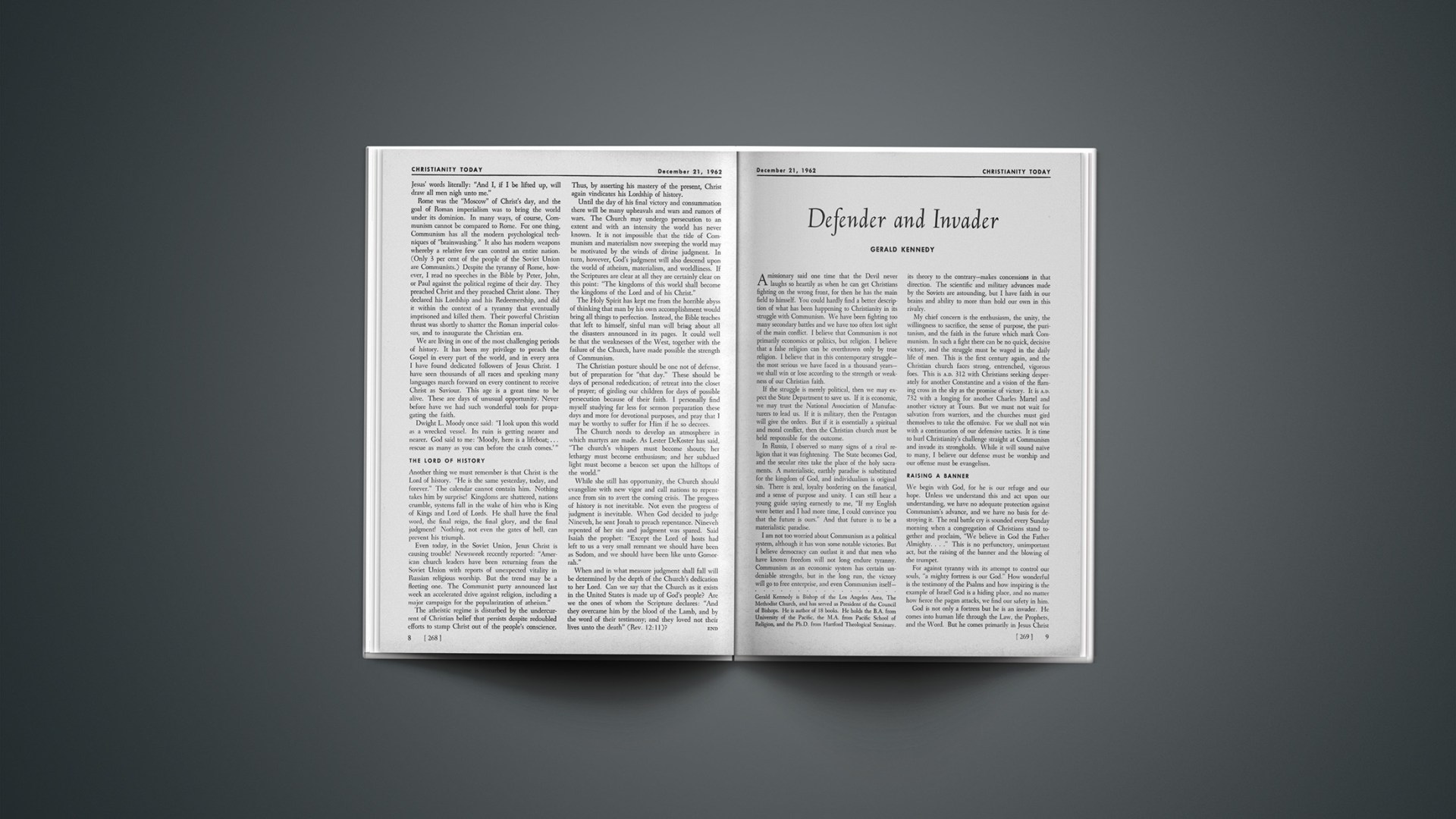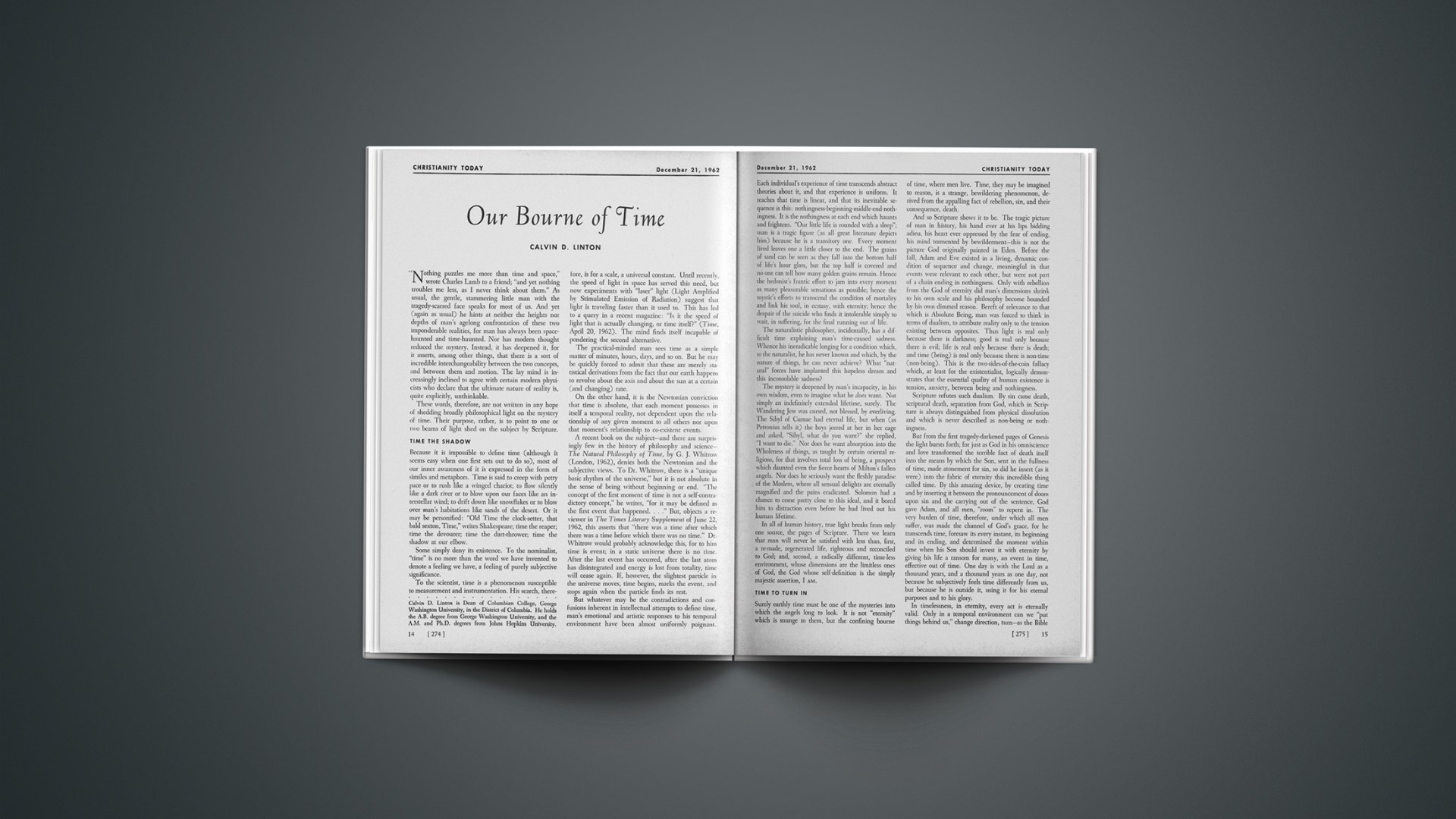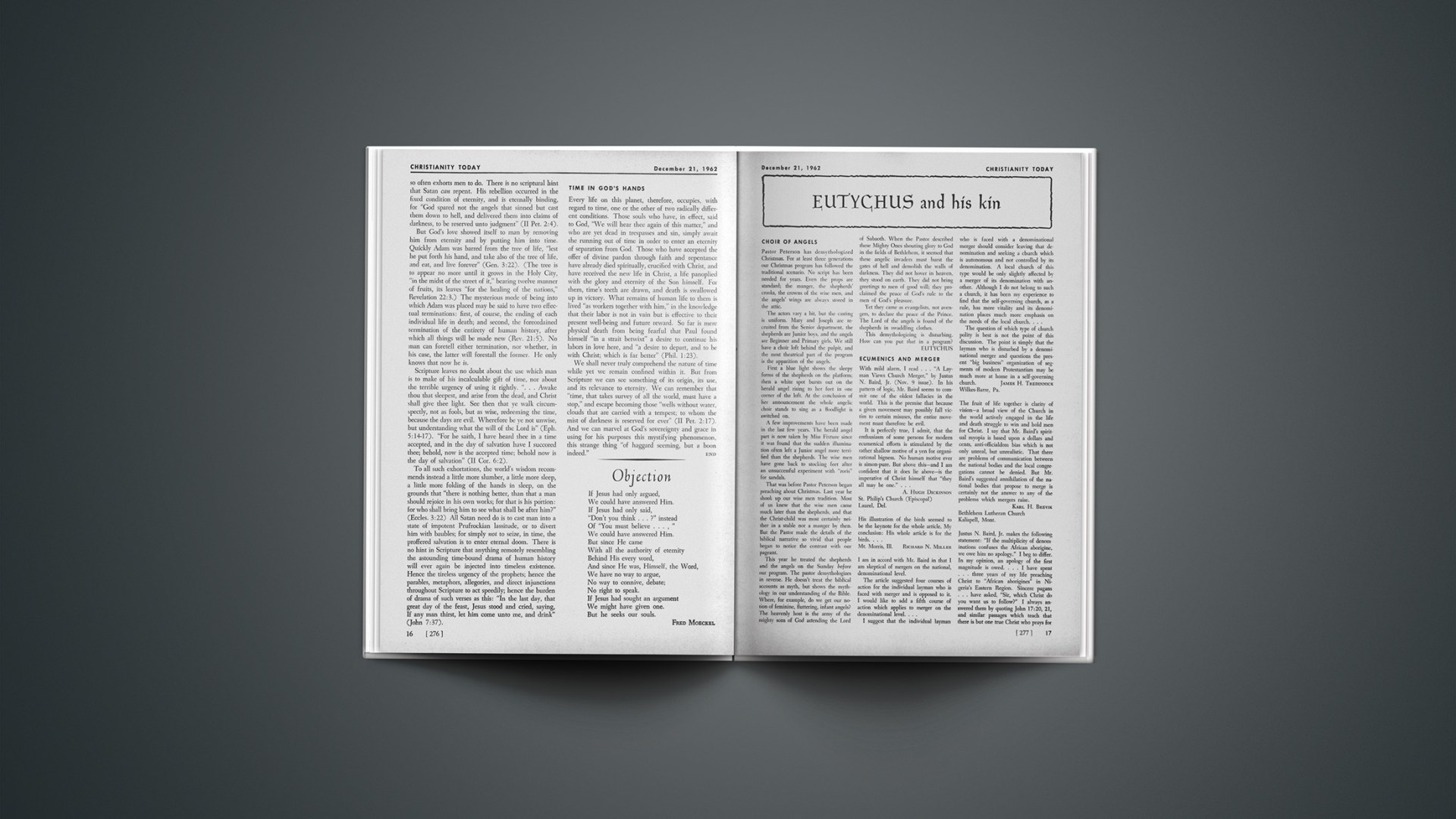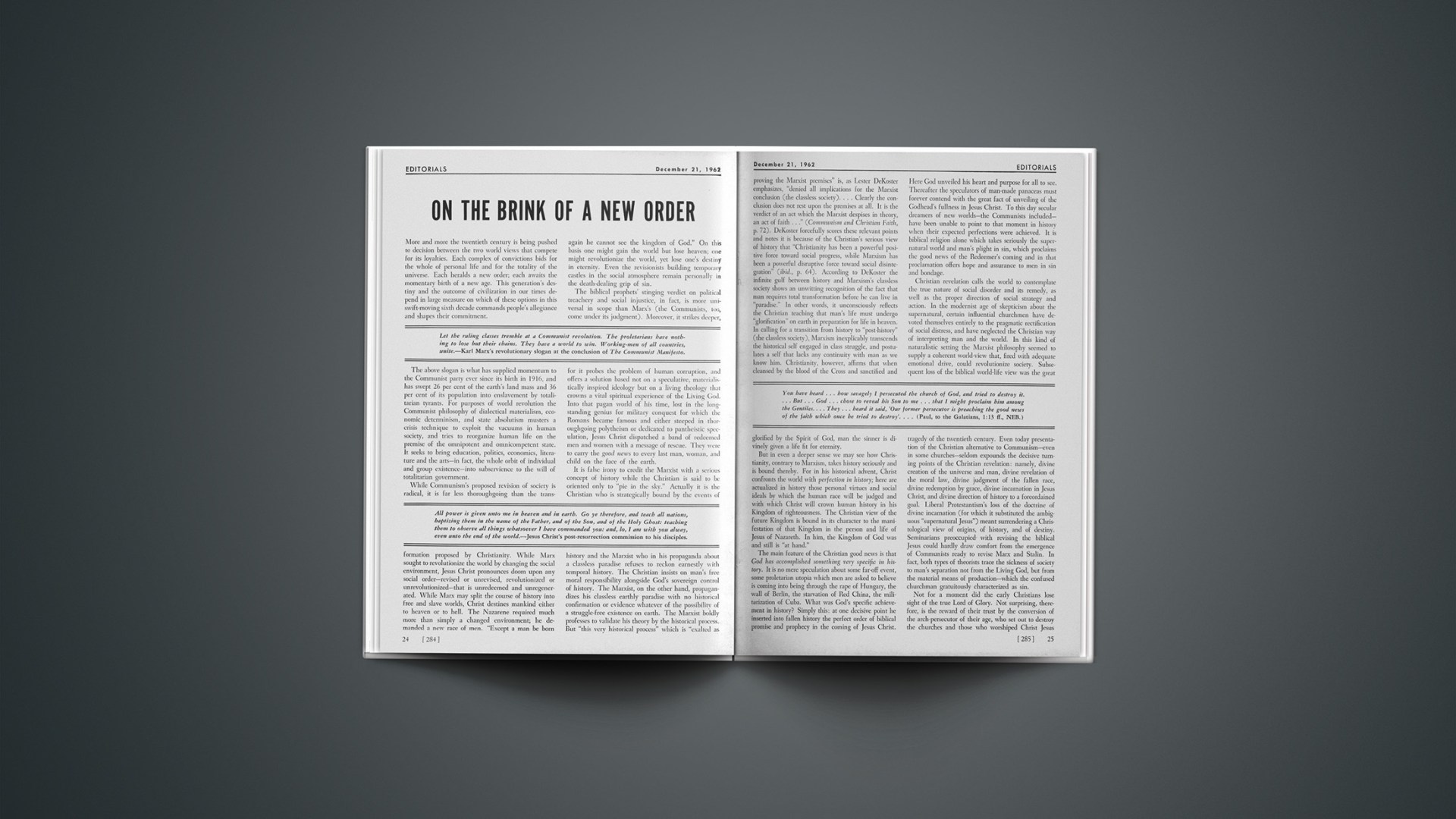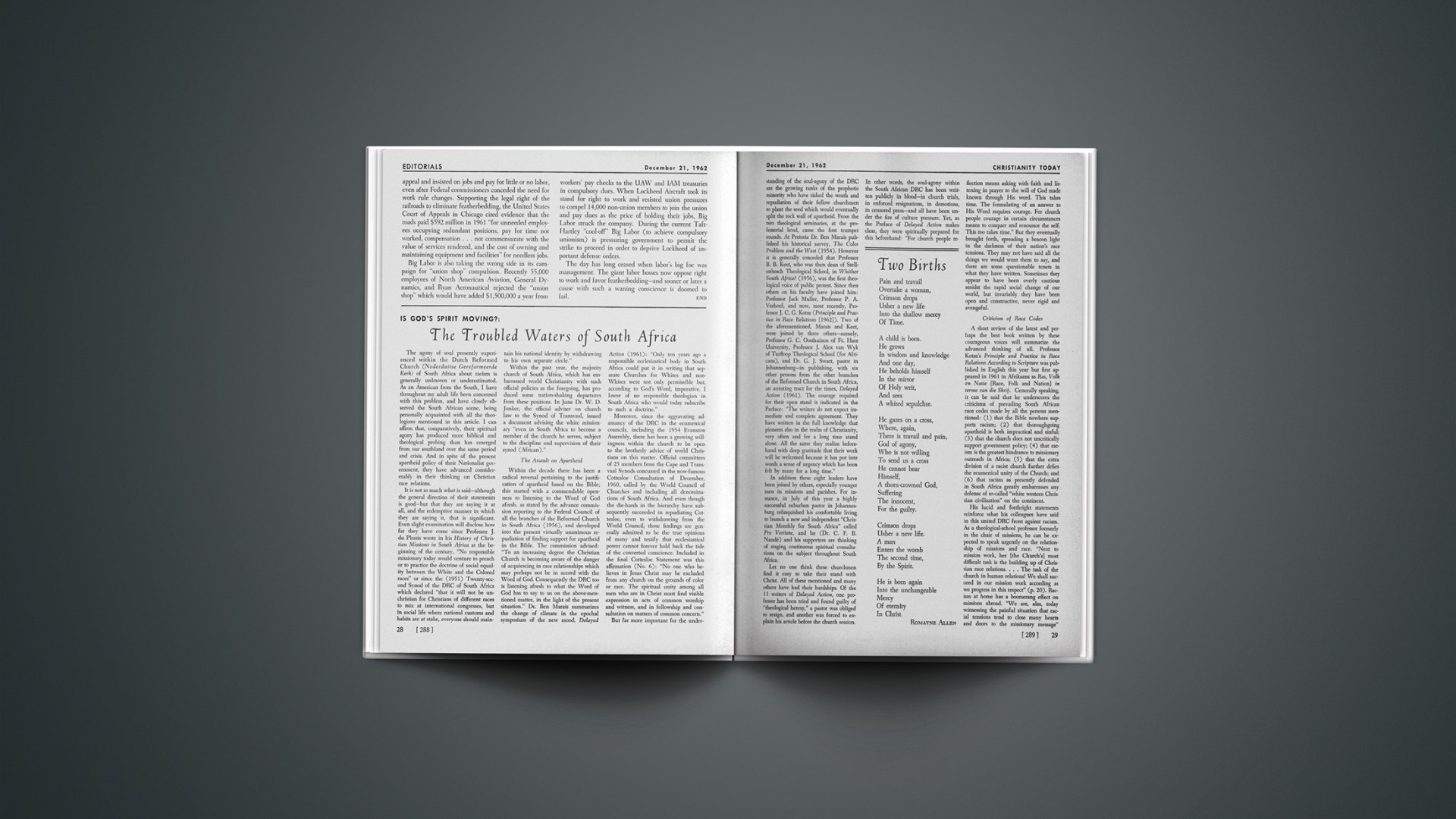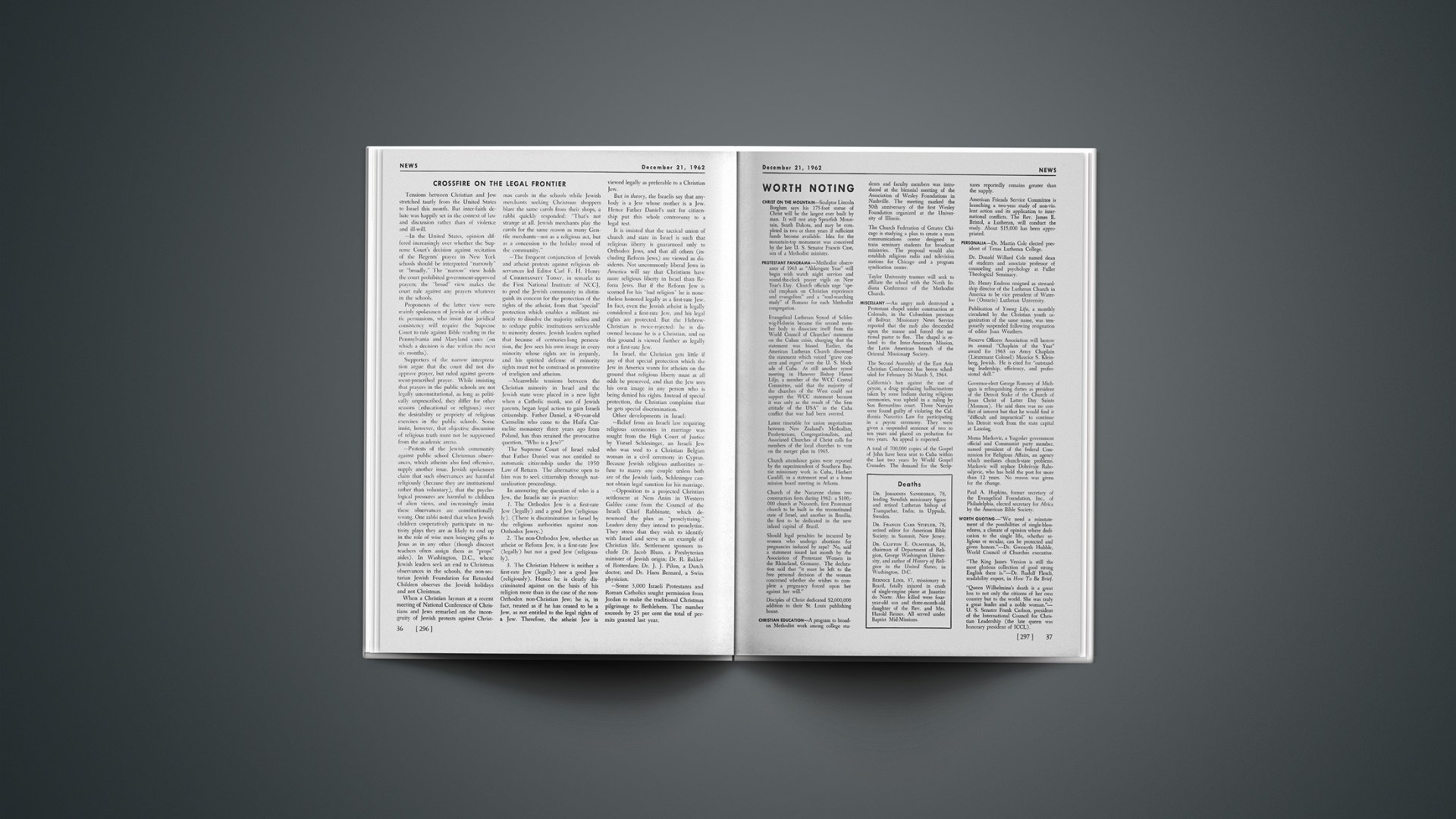A missionary said one time that the Devil never laughs so heartily as when he can get Christians fighting on the wrong front, for then he has the main field to himself. You could hardly find a better description of what has been happening to Christianity in its struggle with Communism. We have been fighting too many secondary battles and we have too often lost sight of the main conflict. I believe that Communism is not primarily economics or politics, but religion. I believe that a false religion can be overthrown only by true religion. I believe that in this contemporary struggle—the most serious we have faced in a thousand years—we shall win or lose according to the strength or weakness of our Christian faith.
If the struggle is merely political, then we may expect the State Department to save us. If it is economic, we may trust the National Association of Manufacturers to lead us. If it is military, then the Pentagon will give the orders. But if it is essentially a spiritual and moral conflict, then the Christian church must be held responsible for the outcome.
In Russia, I observed so many signs of a rival religion that it was frightening. The State becomes God, and the secular rites take the place of the holy sacraments. A materialistic, earthly paradise is substituted for the kingdom of God, and individualism is original sin. There is zeal, loyalty bordering on the fanatical, and a sense of purpose and unity. I can still hear a young guide saying earnestly to me, “If my English were better and I had more time, I could convince you that the future is ours.” And that future is to be a materialistic paradise.
I am not too worried about Communism as a political system, although it has won some notable victories. But I believe democracy can outlast it and that men who have known freedom will not long endure tyranny. Communism as an economic system has certain undeniable strengths, but in the long run, the victory will go to free enterprise, and even Communism itself—its theory to the contrary—makes concessions in that direction. The scientific and military advances made by the Soviets are astounding, but I have faith in our brains and ability to more than hold our own in this rivalry.
My chief concern is the enthusiasm, the unity, the willingness to sacrifice, the sense of purpose, the puritanism, and the faith in the future which mark Communism. In such a fight there can be no quick, decisive victory, and the struggle must be waged in the daily life of men. This is the first century again, and the Christian church faces strong, entrenched, vigorous foes. This is A.D. 312 with Christians seeking desperately for another Constantine and a vision of the flaming cross in the sky as the promise of victory. It is A.D. 732 with a longing for another Charles Martel and another victory at Tours. But we must not wait for salvation from warriors, and the churches must gird themselves to take the offensive. For we shall not win with a continuation of our defensive tactics. It is time to hurl Christianity’s challenge straight at Communism and invade its strongholds. While it will sound naїve to many, I believe our defense must be worship and our offense must be evangelism.
Raising A Banner
We begin with God, for he is our refuge and our hope. Unless we understand this and act upon our understanding, we have no adequate protection against Communism’s advance, and we have no basis for destroying it. The real battle cry is sounded every Sunday morning when a congregation of Christians stand together and proclaim, “We believe in God the Father Almighty.…” This is no perfunctory, unimportant act, but the raising of the banner and the blowing of the trumpet.
For against tyranny with its attempt to control our souls, “a mighty fortress is our God.” How wonderful is the testimony of the Psalms and how inspiring is the example of Israel! God is a hiding place, and no matter how fierce the pagan attacks, we find our safety in him.
God is not only a fortress but he is an invader. He comes into human life through the Law, the Prophets, and the Word. But he comes primarily in Jesus Christ our Lord, and he enters every phase of human life and experience. He moves through men into the center of the evil condition. The history of Christianity has been a story of invasion—of going into all the world. We are not a people called upon to merely defend what we value and build the big barns for our increase. We are to enter a new kingdom and claim the whole world—yes, and outer space—for the King.
It is now time for the Christian church to get off dead center and move the civilization which it has created into an affirmative mood. We have sulked in our tents long enough while fearfully whining about our problems. No nation, including Soviet Russia, is to be out of bounds so far as our offensive is concerned. We have seen what life becomes without God, and we have watched a world sink into despair in its pride and hatred. Communism is a judgment against us. Now, on an aggressive spiritual basis, we must sound again the cry of the Crusades: “God wills it.” When Isaiah said “the crooked ways shall be made straight,” he did not imply this was to be done by a government committee. This is the Church’s task, and only Christianity can challenge atheistic Communism at its most vulnerable point.
In the year 1944, the Yugoslav leader Milovan Djilas visited Moscow and consulted with Stalin. He notes in a recent book (Conversation with Stalin, Harcourt, Brace and World) that the doctrinaire Communists had been shocked to discover that in the crisis the people turned to the Church. It was the great statements of faith that reached their hearts with freshness and vigor. The government propaganda slogans seemed tired and stale in comparison. The words that set men on their feet and start them marching are always words about God.
Our ally is the human spirit, and strangely enough, it has been the Communists themselves who have shown us this truth. Their successes have not been attained by outproducing us or by contributing more to the underdeveloped nations. They have put more emphasis on hope, and they have shown a keen perception of the truth that man does not live by bread alone, even when he is hungry, although this denies their theory.
We have done a poor job in telling the world the kind of society we have built in America. It is easy to paint a dark picture of our failures, which, so far as it goes, may be true. But what free men have accomplished in establishing individual dignity and social responsibility in this country is one of the greatest stories ever told. It is not merely coincidental that this fruit has ripened on the Reformation tree. If the masses of men seek participation and recognition, then our attack must be on a system that sees them merely as servants of the State. Our promise is not only that men may sit under their own vine and fig tree, but that they may live in a society which recognizes that every man has the right to equal justice and equal status before the law.
What are the uncommitted people seeking? Primarily, I believe, they seek recognition as free nations and free persons. They want a better economic life for themselves and their families, but they are breathing the heady air of liberty. So they make mistakes and often seem amazingly unaware of obligations. But the revolutions have been inspired by the Gospel, and Christian teaching has certainly been subversive from the viewpoint of police states like Angola and Mozambique. But as far as propaganda power is concerned, the Christian Gospel makes the Communist promises about as alluring as ten cents’ worth of cold potatoes. The great answer for those who are hoping to be somebody is in the One who came to give us life. As John says, “But to all who received him, who believed in his name, he gave power to become children of God” (1:12, RSV).
In the face of an almost universal drive for independence and freedom, Christianity challenges the sentimental basis on which this drive too often rests. The people under colonial domination have often assumed that the removal of the outside powers will give them freedom. It has not worked that way, and we watch small nations trade an imported tyranny for a domestic one. The Communist doctrine is that freedom comes when one class is substituted for another, as if virtue were an economic affair. A visit behind the Iron Curtain reveals a sullen, sad, proletarian atmosphere that is as different from the free societies of the West as darkness from light. All men are sinners, as the Bible makes clear, and all men are the victims of a lust for power. Only the democratic doctrine that no man is good enough to be trusted with unchecked power over another will ever establish a free society. And this stems out of the Church’s doctrine that each man is of final importance but all men sin.
It has never seemed more obvious to me than just now that the conflict is spiritual and religious. No single concentration of physical power will protect us. We have to make clear to ourselves and to the enemy that our faith in God revealed through Jesus Christ has brought us through crises as great as this one. The Christian faith changes men, creates new societies, and lifts them to new moral heights. It is that power which sustains us in the perilous fight. For no matter what the immediate future may be, we know that the ultimate triumph is in God and in Jesus Christ, whom he has sent. This faith is the assurance that even Communism’s successes are but steps toward its ultimate failure, while even our own setbacks are but incidents along the road to final victory.
END

